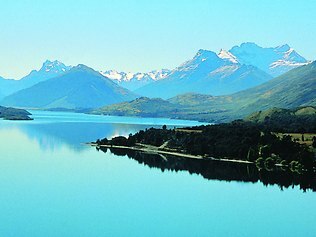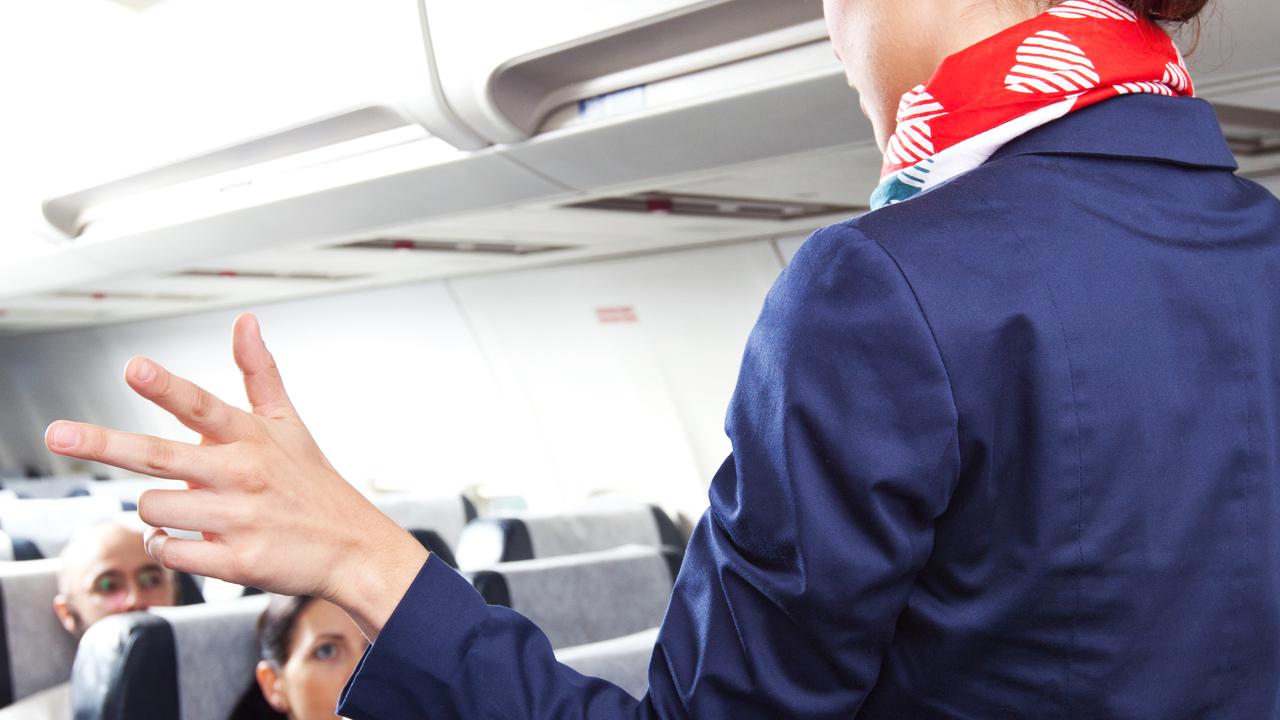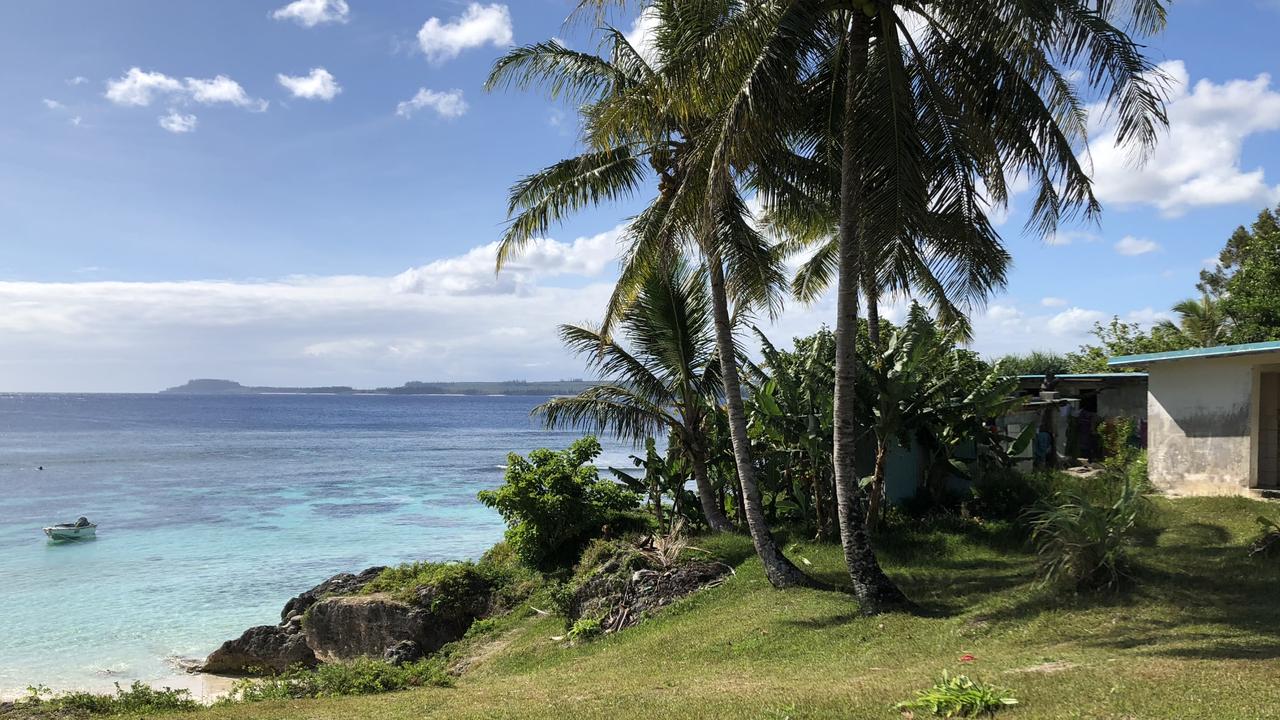Relax at Kiwi space station
A BOOM in eco-tourism has breathed new life into the farms of New Zealand's south island, offering visitors a homestay away from it all.

THE plan was to reach the 1585m summit of New Zealand's Mt Nicholas just after 3pm. As with all great mountaineering expeditions, the final few steps would prove the trickiest of the ascent.
A southerly gale bit hard and the rocky terrain was deceptively unstable. I kept my eyes glued to the peak ahead and the promised view of Lake Wakatipu, one of the most scenic stretches of water in New Zealand's South Island.
And there was the incentive of joining the select crew that has stood on the peak of one of New Zealand's largest high-country sheep stations, which takes its name from the mountain. As we reached the summit, I wiped sweat from my brow, my breathing heavy, searching for oxygen in the thin, high-altitude air ... and stepped down off the helicopter.
The chopper was a Robinson R44, piloted by Dave Butson, son of station owners Robert and Linda. From here I bravely covered the last 10 to 20 metres on foot to reach the summit and drink in a view as good as any in the world.
Looking north, 32km away, was the adrenalin capital of New Zealand, Queenstown. To the west, the craggy, snow-covered peak of the 2819m Mt Earnslaw towered above the clouds. The meandering valley of the Van River Te Anau, the gateway to Milford Sound - was to the south.
The 40,400ha Mt Nicholas station is shadowed by the Thompson and Turnbull ranges on the western shores of Wakatipu. Until recent years it was home to four generations of the Butson family but now they are sharing it with the public, with the property home to tourist accommodation.
While it's still a working farm, running more than 200,000 merino sheep and 3000 head of Hereford cattle, the family has turned a struggling rural enterprise into a thriving hub for ecotourism.
Looking to further diversify, they entered into a business relationship with leading adventure clothing company Icebreaker.
"Before we opened the lodge for accommodation, we concentrated on heli-skiing and hunting and fishing," Robert Butson says. "However, it was always important for us to look after our core product, sheep farming."
Although there was little snow adorning the peaks during my visit, from atop Mt Nicholas it was obvious the adjacent mountains would be irresistible to skiers who want to escape the masses at Queenstown's premier ski fields, Coronet Peak and The Remarkables, when the snows arrive around June.
It was hunting season and although I did not see any of the red stag, fallow or wapiti deer that roam the area, there was plenty of evidence, with the trophies of antlers adorning the woolsheds and other farm buildings.
The lodge, managed by Bruce and Adrienna Collins, slept three couples or five individuals.
Adrienne cooked fine meals with hearty servings, including venison pie, rabbit terrine and merino lamb chops.
They were tender and full of flavour (usually only associated with Canterbury lamb) and were washed down with some of Central Otago's finest pinot noirs.
The station grows its own vegies and fruit in an organic garden. All the meat and fish comes from the station's land or waterways so is always fresh. Adrienne also makes her own jam.
The station generates its own electricity by way of hydro power. A natural lake fills a plateau just above the farmhouses and the fall of the water drives the turbines.
Bruce says Mt Nicholas Lodge caters for people who want the "real New Zealand", and the station offers something year round.
"Most of our visitors usually stay about four days and come between October and March to see the high country. We offer something that is different. But what gives me most satisfaction is we have something special here. And people have returned to stay on many occasions. That is especially satisfying for us."
Hike on the station's many trails; catch rainbow trout for the evening dinner; or laze on the front lawn and absorb the views, which seemed to change every hour as clouds and shadows altered the appearance of the mountains. The many native bird species that call Mt Nicholas their home offer a wonderful chorus that naturally enhances this ambience.
A stroll around the lakefront is easy, but very satisfying. This is a beautiful place to relax and let the pressures of the outside world fade away.
In winter, curl up in front of the large stone fireplace and wonder what the rest of the world is doing.
One of the great virtues of Mt Nicholas Station is its relative remoteness. Despite being within view of Queenstown, there is no direct road access but it's a short distance across the lake by boat or by air.
We were taken on a quick trip to the site of the original homestead, built in the 1850s. Like all good ruins it is said to be inhabited by a ghost - one of the station's original chefs.
The writer was a guest of Icebreaker (icebreaker.com).
** Trace origin**
WANT to know where your new Icebreaker jumper came from? Just scan the "Baacode".
Jeremy Moon, the founder and chief executive officer of Icebreaker, has built a multinational company on the back of an affinity with the land and the sheep that produce the merino wool for his products, and he wants his customers to feel the same.
Because nearly all his contracted stations have homestay facilities, you can actually watch the mustering and shearing of the merino sheep to see where your garment came from.
It is a little more hands-on than just removing the hanger from a shop, and that is the way Moon likes it.
He has a relationship with nearly all owners of the 180 stations used by Icebreaker, stretching from Marlborough at the top of the South Island, to Mt Nicholas on Lake Wakatipu.
In 1997, Moon needed greater certainty so he signed the growers to long-term contracts. This proved a winner to both the growers and Moon.
He had a say on animal welfare, wool quality and environmental management and the growers had certainty on prices.
Icebreaker deals only in merino products, not wool, as wool is "the old grey school jersey that was itchy and uncomfortable to wear," he says.
"And that's why we don't use the word wool and only refer it as merino."
Go2
MT NICHOLAS
Getting there Fly to Queenstown. From there travel by water taxi, steamship TSS Earnslaw or helicopter.
Staying there Mt Nicholas Lodge, see mtnicholaslodge.co.nz
Doing there Guided farm tour; local walks; fishing; kayaking; mountain biking; sheep mustering and heli-hiking.



